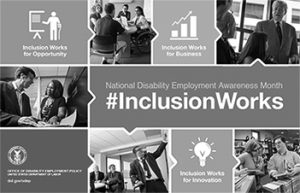 Barbara Doyle, Contributing Writer
Barbara Doyle, Contributing Writer
Spoken from the experience of having a debilitating disease, learning who can help on college campuses can positively increase students’ outlook of living with a disability.
Imagine waking up for that 8 a.m. class and physical exhaustion has settled into your bones after a night of insomnia and an internal battle is raging in your body; you’re tired, you’re unmotivated, you’re weak, you’re sore, and you need coffee or some sort of miracle to get you on your way. Unless you’re part of the minority who enjoys early morning lectures, some students and advisors tend to warn you about enrolling in an 8 a.m. class. However, there are the occasions that a required class is only taught bright and early. You have no choice but to go. With a disability, waking up in the morning can be ten times harder.
Disabilities come in various forms, whether they’re physical, cognitive, mental, or emotional. Some disabilities can be seen externally while others are not. According to the data collected in 2015 by the U.S. Census Bureau, at least 36 million Americans are affected by at least one disability.
Of those 36 million Americans, only 13 percent of people aged 25 or older have at least a bachelor’s degree. Certain disabilities and environments can make getting an education more difficult, which is why the implementation of campus disability services are vital for students with disabilities.
“We have various accommodations for people with disabilities,” said Jenny Bagby, the assistant director of Student Disability Services (SDS). “We offer note-taking, where a student from the same class copies their notes for you, or even the Smart Pen.”
The Smart Pen records notes taken in class and can be plugged into the computer to transfer them into digital text. Other accommodations offered by Student Disability Services are testing assistance, classroom assistance, extended test-taking time, distraction free areas, tutors, personal advisement, academic advisement, and many more based on the individual plan set by the office and the student.
The Disability Awareness Club (DAC) is another group that is welcome to all students, staff, and faculty who are interested in learning more about disability awareness and volunteering. Given it is Disability Employment Awareness month, this is an opportune time to get educated and involved.
Samantha Pelinger, the president of DAC, said, “Our main goal is to provide awareness, education, support, and inclusion of students, faculty, and staff with and without disabilities.”
According to Pelinger, the club works with The Arc Otsego to help host the 5K Hot Cocoa Run, as well as other fundraiser events such as Pizza with a Twist; the proceeds will go to Springbrook School, a facility that provides opportunities for recreation, education, and development of vocational skills to those with disabilities. Other events sponsored by the DAC include movie showings and socials throughout the semester.
The next movie event will take place Thursday, November 10 from 5:30-7:30 p.m. at the Hunt Union Red Dragon Theatre. DAC will be co-hosting the event with the Autism Awareness Club, showing the Netflix film series The Fundamentals of Caring. Dr. Thornton, the club advisor, will speak about individuals living with disabilities.
DAC meetings are held every Tuesday from 4-4:30 p.m. in Fitzelle room 204. All are welcome.
Leave a Reply